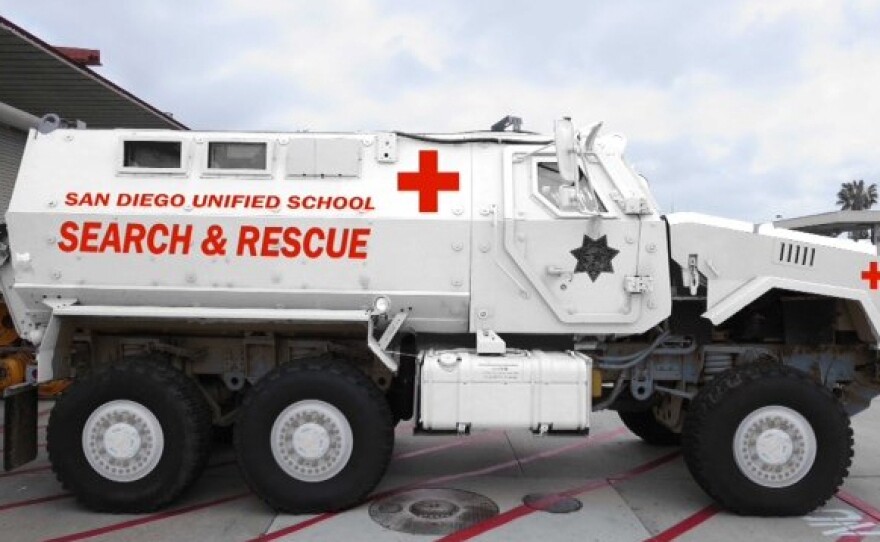San Diego Unified Police Chief Michael Marquez said his department has no plans to acquire surplus military equipment now that President Donald Trump has reinstated a program that transfers combat vehicles and gear to local law enforcement agencies.
The district garnered national attention in 2014 when its previous chief, Ruben Littlejohn, procured a mine-resistant ambush protected vehicle — or MRAP — through the program.
Though the vehicle was free, Superintendent Cindy Marten approved a $5,000 expenditure to transport it to San Diego.
The district intended to use its MRAP for rescues in crisis situations such as school shootings. Students in Morse High School’s Auto Collision and Refinishing Program transformed the tan, tank-like vehicle with white paint and red crosses. But the vehicle arrived at a time of public outrage over images of police tanks and heavily armed officers squaring off with Black Lives Matter demonstrators in Ferguson, Missouri, following the police shooting death of Michael Brown.
The district returned the vehicle, and President Barack Obama later restricted the flow of military equipment to law enforcement agencies.
On Monday, Attorney General Jeff Sessions announced the Trump administration would lift those restrictions.
RELATED: Trump Administration Lifts Limits On Military Hardware For Police
"The executive order the president will sign today will ensure that you can get the lifesaving gear that you need to do your job and send a strong message that we will not allow criminal activity, violence and lawlessness to become the new normal," Sessions said at a gathering of police officers.
The district does not have an official policy against procuring military surplus, but board members at the time made it clear to central office staff they were disappointed with the move and expect to be looped in on such decisions.
Littlejohn left the district last year to become assistant chief of the county’s probation department.








